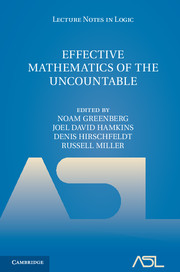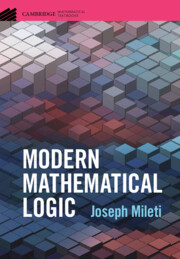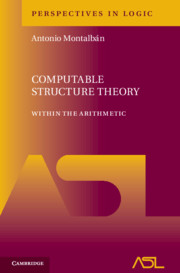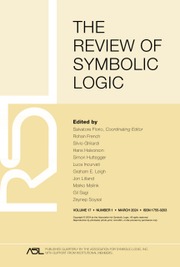Effective Mathematics of the Uncountable
Classical computable model theory is most naturally concerned with countable domains. There are, however, several methods – some old, some new – that have extended its basic concepts to uncountable structures. Unlike in the classical case, however, no single dominant approach has emerged, and different methods reveal different aspects of the computable content of uncountable mathematics. This book contains introductions to eight major approaches to computable uncountable mathematics: descriptive set theory; infinite time Turing machines; Blum-Shub-Smale computability; Sigma-definability; computability theory on admissible ordinals; E-recursion theory; local computability; and uncountable reverse mathematics. This book provides an authoritative and multifaceted introduction to this exciting new area of research that is still in its early stages. It is ideal as both an introductory text for graduate and advanced undergraduate students and a source of interesting new approaches for researchers in computability theory and related areas.
- Will appeal to graduate students, advanced undergraduates and researchers
- Brings together many different notions of computability for the first time
- Written by pioneering researchers in the field
Product details
December 2013Hardback
9781107014510
204 pages
235 × 155 × 16 mm
0.44kg
Available
Table of Contents
- List of contributors
- Preface
- 1. Introduction
- 2. Borel structures: a brief survey Antonio Montalbán and André Nies
- 3. Infinite time Turing machines and an application to the hierarchy of equivalence relations on the reals Samuel Coskey and Joel David Hamkins
- 4. Some results on R-computable structures W. Calvert and J. E. Porter
- 5. Effective model theory via the Σ-definability approach Alexey Stukachev
- 6. Computable structure theory using admissible recursion theory on ω1 Noam Greenberg and Julia F. Knight
- 7. E-recursive intuitions Gerald E. Sacks
- 8. Local computability and uncountable structures Russell Miller
- 9. Reverse mathematics, countable and uncountable: a computational approach Richard A. Shore.







